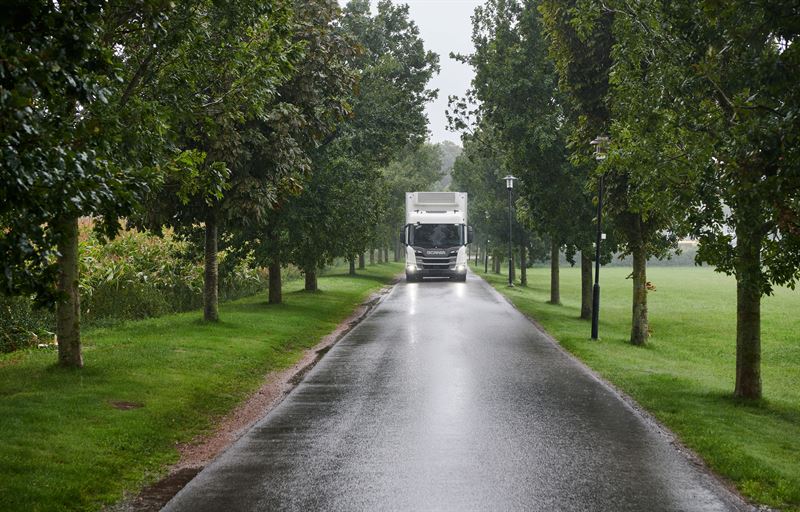Scania’s Science Based Targets are now approved

As the first major manufacturer of heavy commercial vehicles, Scania’s far-reaching climate targets have officially been approved by the Science Based Target initiative (SBTi). Scania is committed to achieving the Paris agreement goals of limiting global warming to 1.5°C above pre-industrial levels.
Scania will cut CO2 emissions from its own operations by 50 percent by 2025 1, and reduce emissions from its products by 20 percent during the same period.
"Since more than 90 percent of the CO2 emissions generated in our business occurs after the products leave our factories, it is imperative that we also consider these emissions. Limiting ourselves to only reducing our own emissions is simply not enough. We will therefore work in close cooperation with our customers in operating their trucks, buses and engines with less climate impact," says Scania's President and CEO Henrik Henriksson.
The SBTi approval recognises that Scania’s targets align with the most strict decarbonisation pathway defined to date – 1.5°C for Scope 1 and 2. The targets that Scania has set include both direct and indirect emissions from its operations (Scope 1 and 2), as well as emissions from when the products are in use (Scope 3).
"We congratulate Scania for their commitment to take the urgent action needed to address the climate crisis," said Alexander Farsan, global lead for Science Based Targets at WWF, one of the Science Based Targets initiative (SBTi) partners. "They are the first heavy commercial vehicle manufacturer to set an ambitious 1.5°C target through the SBTi and commit to reducing emissions not only from their own operations, but also from the use of their vehicles."
"Science is today clear that our future on Earth depends on holding global warming well-below 2°C, which means cutting emissions by half every decade. Science based targets are critical to succeed in this endeavour. Heavy transport is a backbone of our societies, and Scania's commitment to science based targets for climate, along its entire value chain, will not only contribute to reduce climate risks, but will also send a strong signal through the economy, that decarbonising is real, is now, and constitutes an investment in future competitiveness", says Johan Rockström, professor in Earth system science, and Director of the Potsdam Institute for Climate Impact Research in Germany.
Over the past several years, Scania has significantly reduced CO2 emissions from its own operations and from its own transport and logistics. Scania has also worked to minimise emissions from its products through fuel efficiency measures. Since more than 25 years, the company has provided the industry’s broadest range of products that run on alternatives to fossil fuel. In September 2019, Scania announced its aim to set Science Based Targets. The approval of these targets now marks another major milestone on the journey towards fossil-free transport.“Regardless of whether we, as at present, are in the midst of a crisis or not, we will not compromise on sustainability. Driving the shift towards a sustainable transport system is Scania’s purpose and we remain fully committed,” says Henriksson.
1 Using 2015 as a baseline.
For further information, please contact:
Karin Hallstan, Head of Corporate Communication & PR
Tel: +46 76 842 81 04
E-mail: karin.hallstan@scania.com
Andreas Follér, Head of Sustainability
Tel: +46 8 553 700 34
E-mail andreas.foller@scania.com
Karen Richards, Media Relations Manager, WWF International
Tel: +44 7775 552592
Email: krichards@wwfint.org
Scania is a world-leading provider of transport solutions. Together with our partners and customers we are driving the shift towards a sustainable transport system. In 2019, we delivered 91,700 trucks, 7,800 buses as well as 10,200 industrial and marine engines to our customers. Net sales totalled to over SEK 152 billion, of which about 20 percent were services-related. Founded in 1891, Scania now operates in more than 100 countries and employs some 51,000 people. Research and development are concentrated in Sweden, with branches in Brazil and India. Production takes place in Europe, Latin America and Asia, with regional production centres in Africa, Asia and Eurasia. Scania is part of TRATON SE. For more information visit: www.scania.com.


